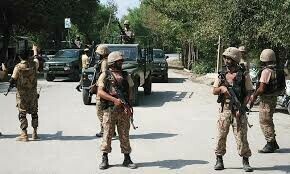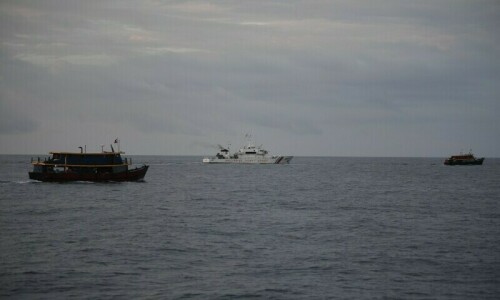
ISLAMABAD: The Army on Wednesday asked US commanders to be mindful of its ‘concerns and constraints’ before publicly lashing out at its counter-militancy efforts.
“Our concerns and constraints must be taken into consideration before making any statement questioning our commitment to fighting militancy,” said ISPR chief Maj-Gen Athar Abbas in a rejoinder to statements made at their testimonies before US Senate’s Armed Services Committee by Lt-Gen John Allen, nominated as the next commander of US and Nato forces in Afghanistan, and Admiral William McRaven, designated to lead Special Operations Command.
Gen Abbas said: “We reject the allegations levelled by senior US military officials… casting aspersions on the desire and capability of Pakistan Army to fight militancy.”
Admiral McRaven, speaking on Pakistan’s reluctance to launch military offensive against the North Waziristan-based Haqqani network, had said it was “both a capacity issue and potentially a willingness issue”. He added: “I don’t think it (the mindset) is likely to change.”
Gen Allen had said Pakistan looked to be “hedging” against a possible US withdrawal by not acting against the Haqqanis.
The statements by American commanders expressing doubts about intentions of Pakistani commanders in the fight against militants are indicative of the rapid deterioration in military ties between the US and Pakistan in the aftermath of May 2 raid on Osama bin Laden’s compound.
The army, Gen Abbas said, is engaged in active operations against militants in three of the seven agencies in the tribal belt, whereas in the other agencies it was intensely involved in consolidation and stabilisation of the areas regained from militants.
Separately, another senior military official criticised the US for pushing Pakistan for action against Haqqanis and other militant groups at a time when it was holding negotiations with the Afghan Taliban.
“Our plate is too full,” he cautioned, adding that if the troops were further thinned down to start new operations reversals of gains made against militants could begin.
The official regretted that military strategists in Washington did not grasp the ground situation. “It is not just about kinetics (active military operations); in Pakistan’s case the army has to back the operations with consolidating and stabilisation because the civilian infrastructure is virtually non-existent in those areas.”
He said Pakistan Army cannot resort to indiscriminate use of force against its own people in tribal areas and would take tribes on board before acting against militants.















































Dear visitor, the comments section is undergoing an overhaul and will return soon.